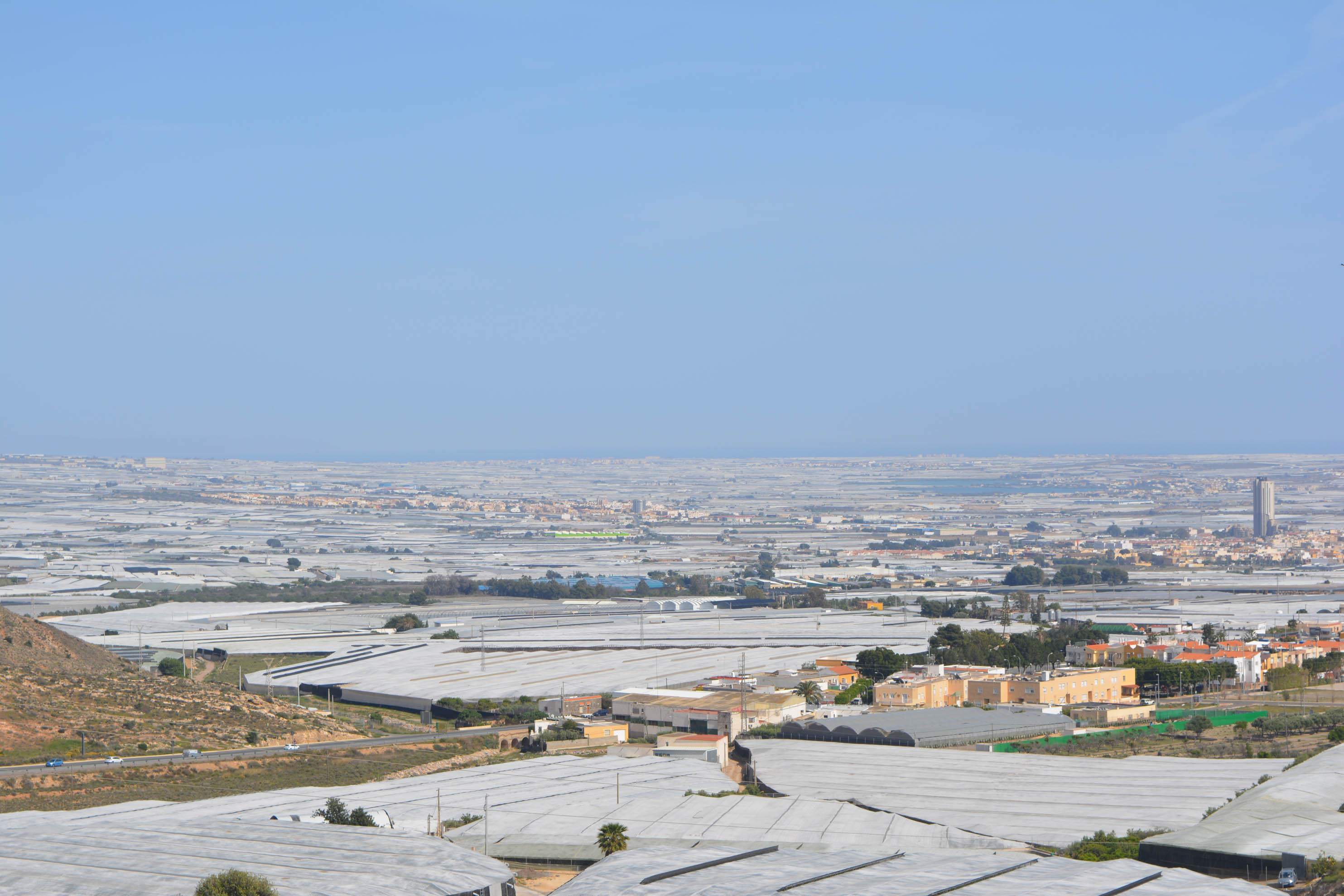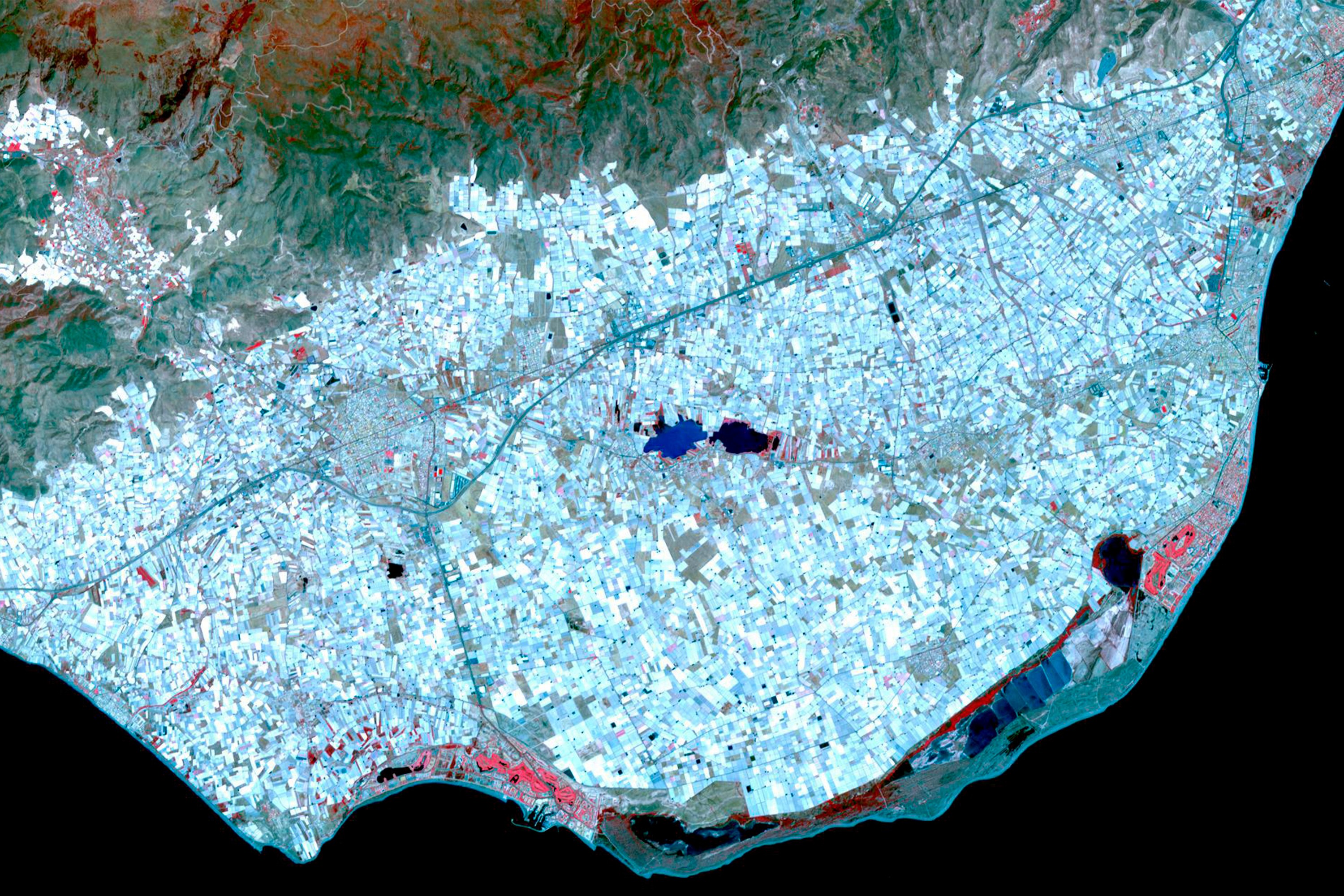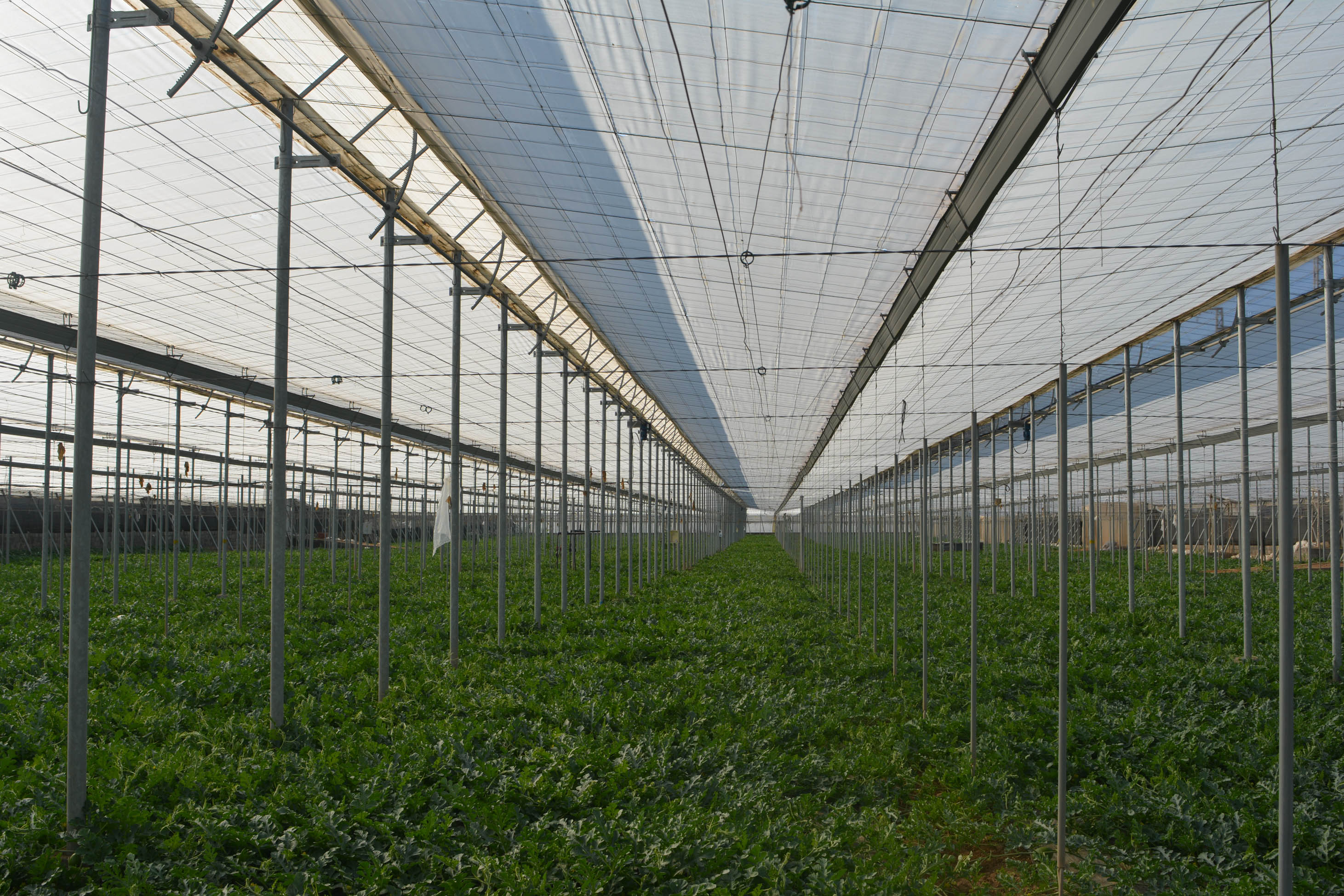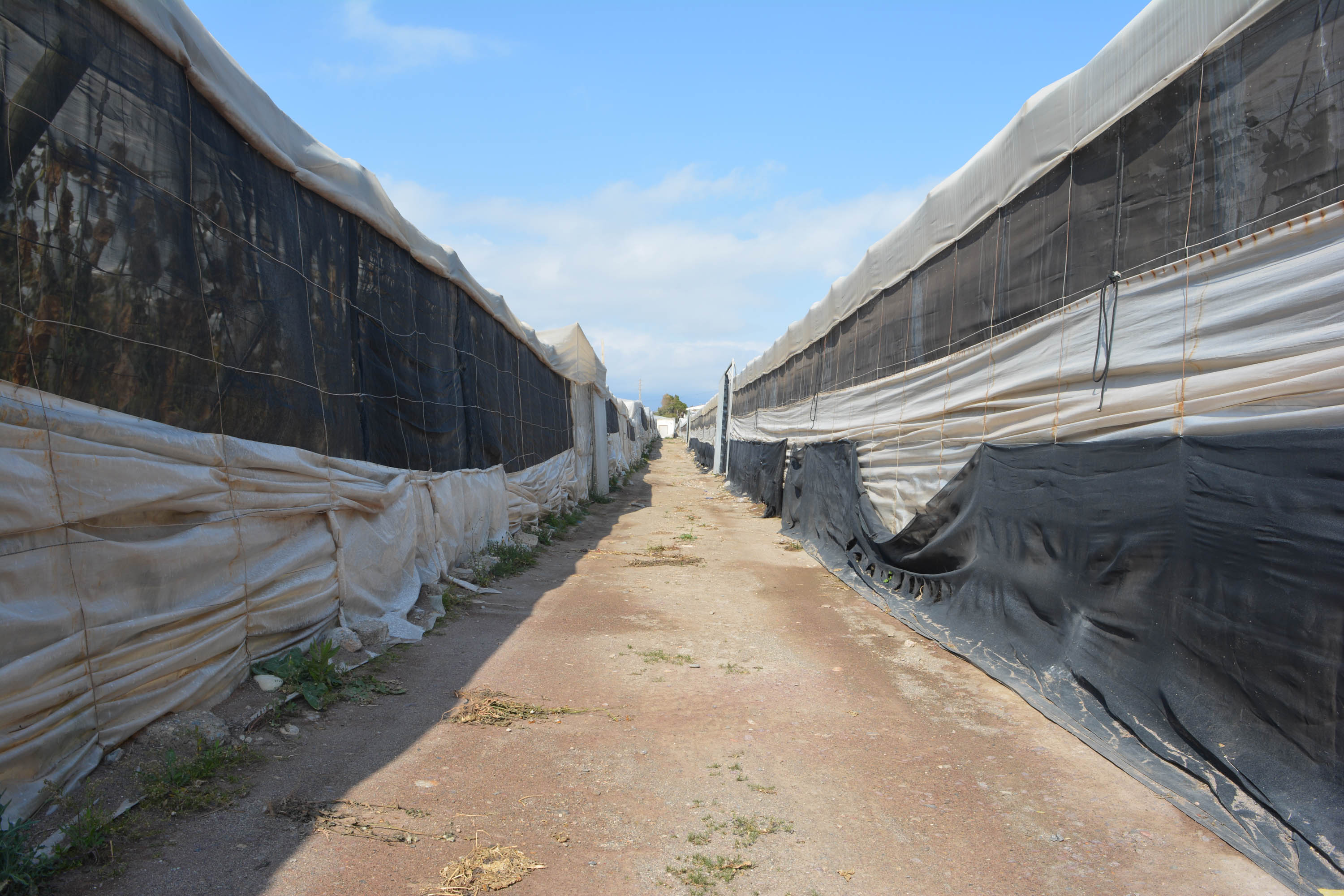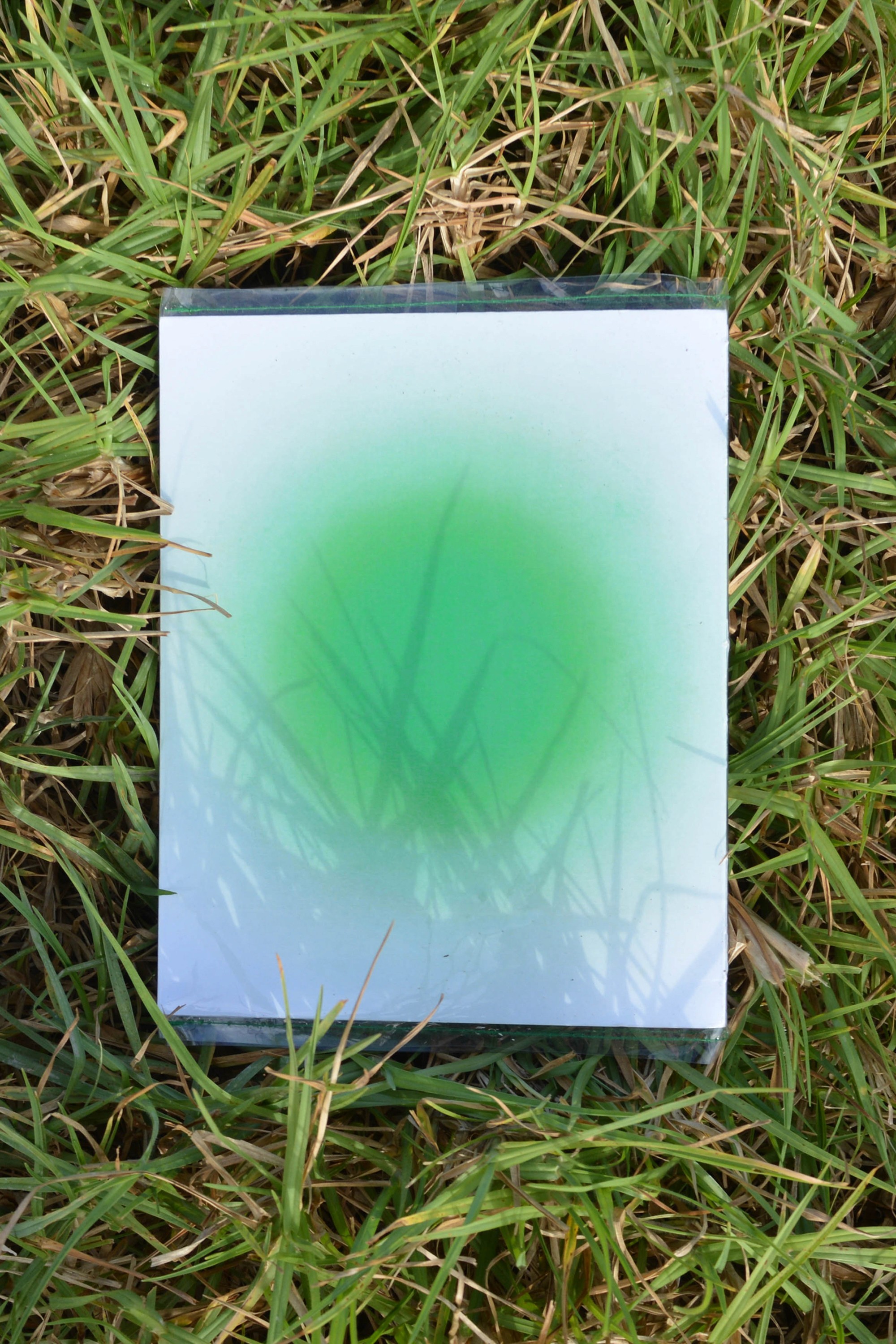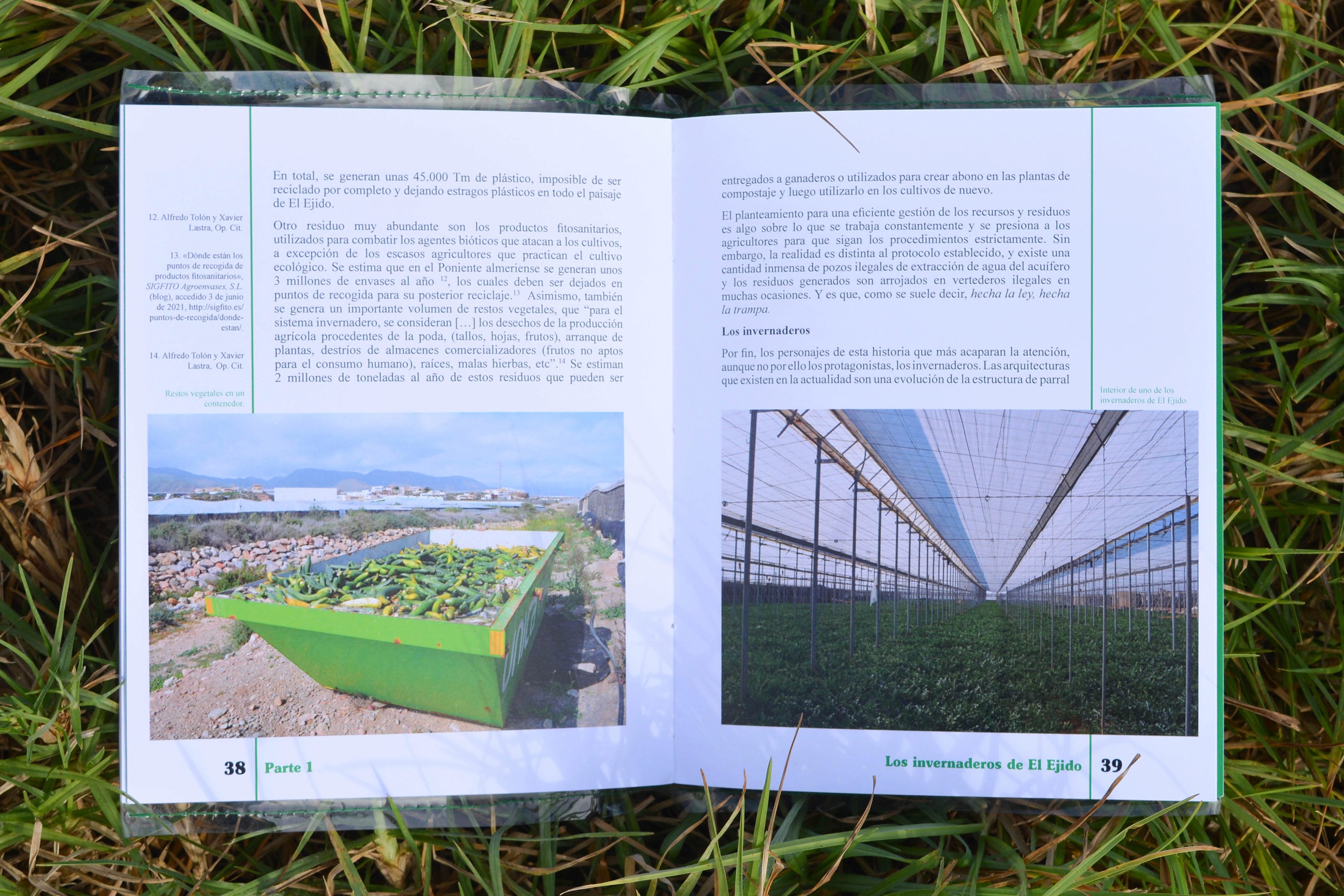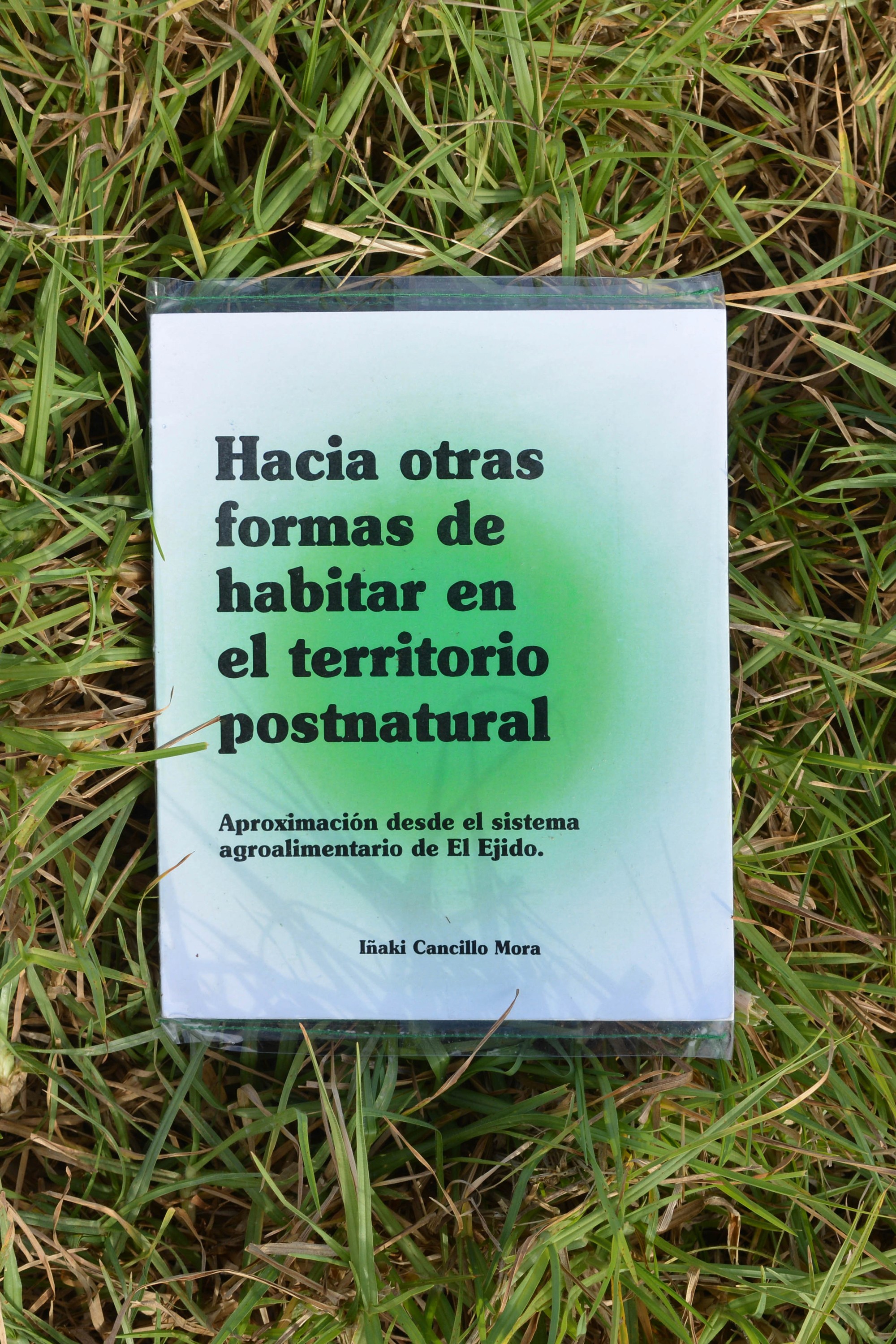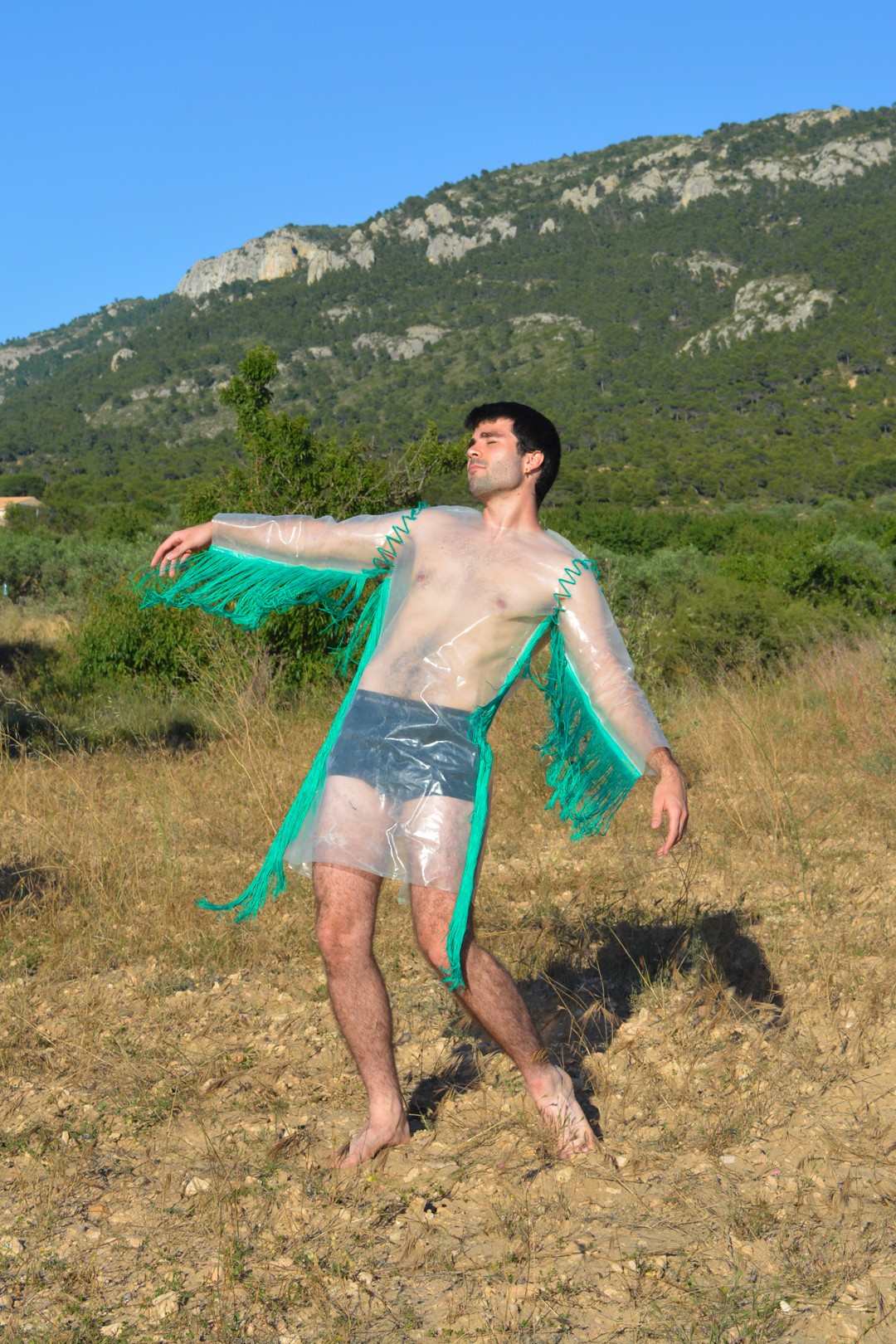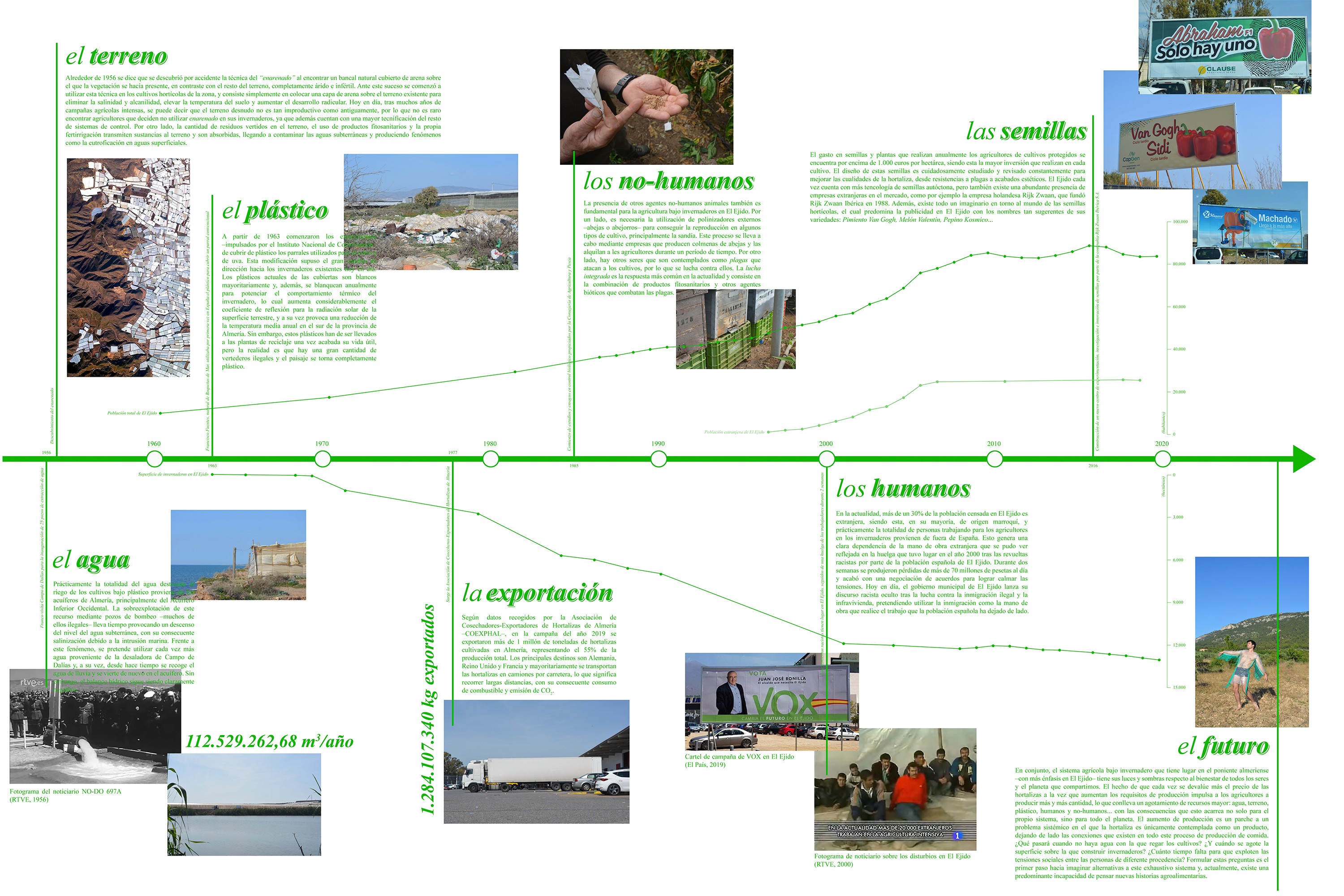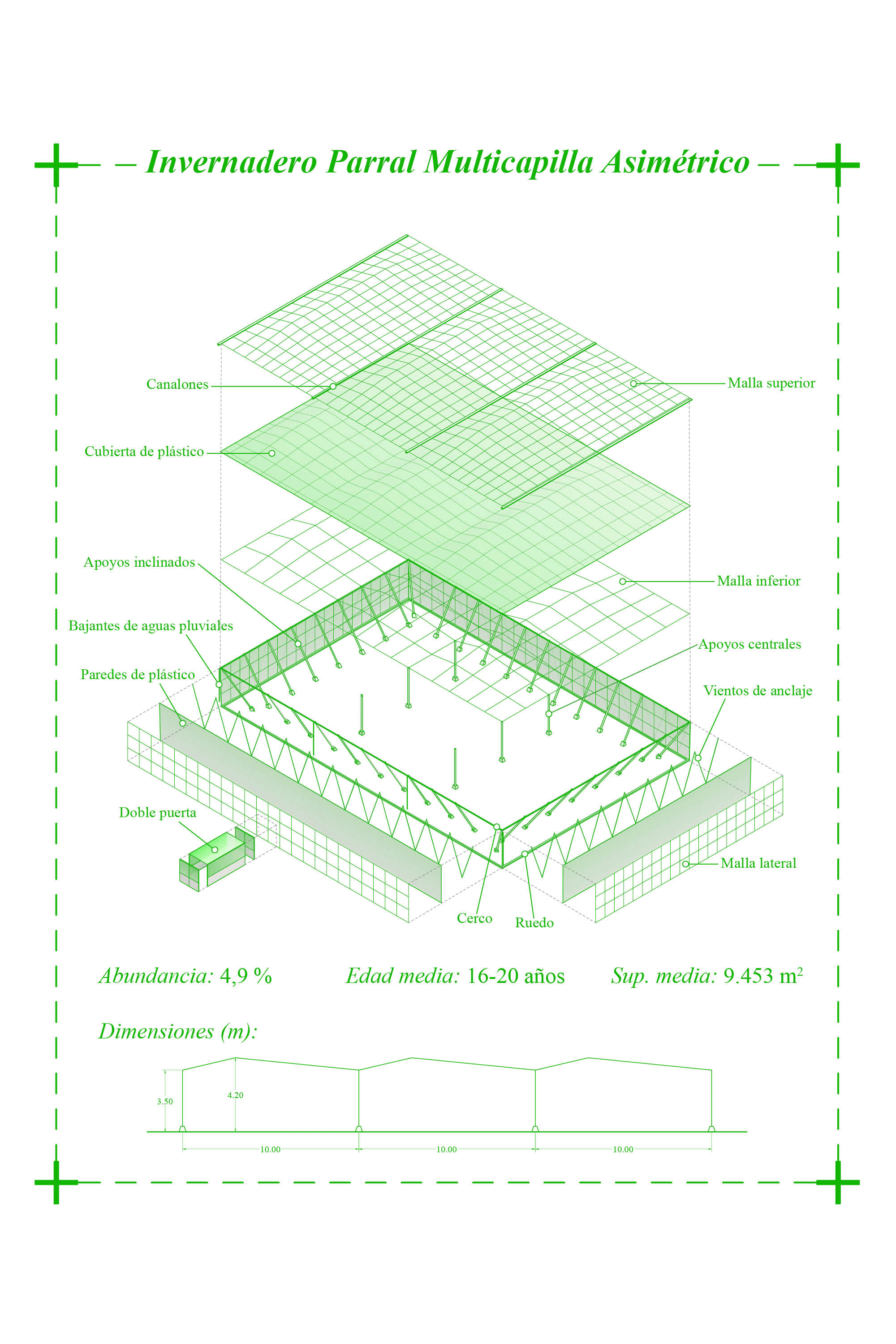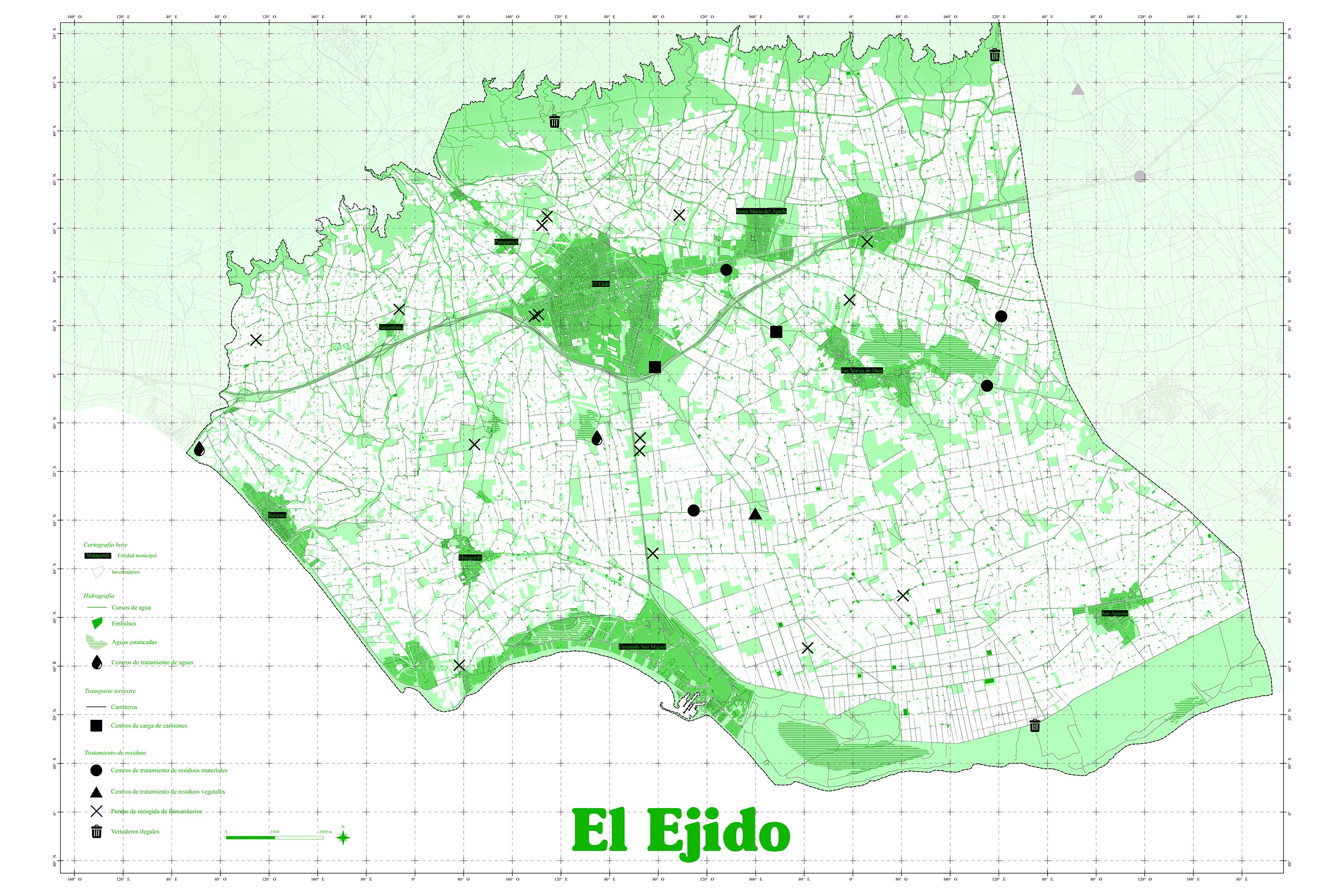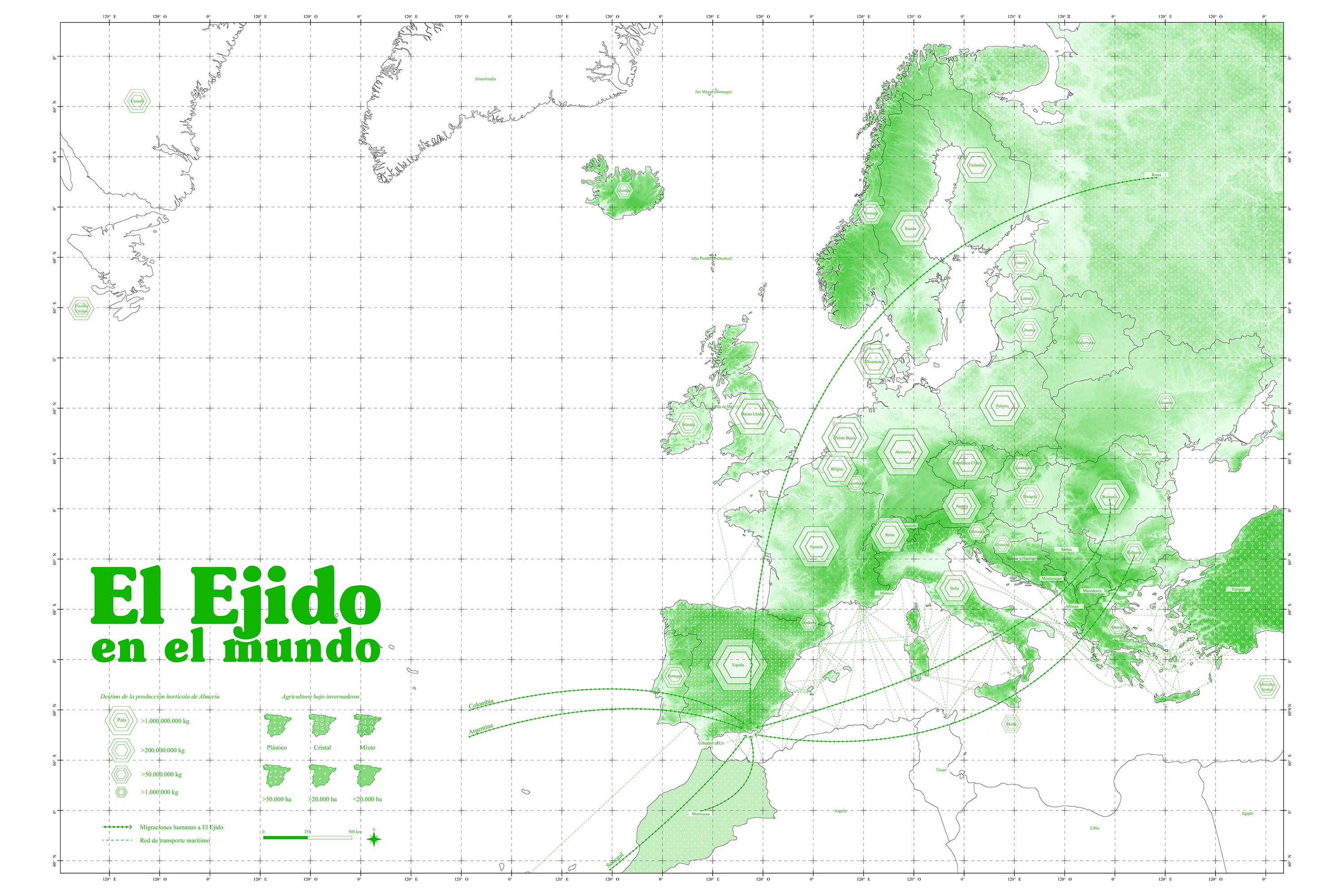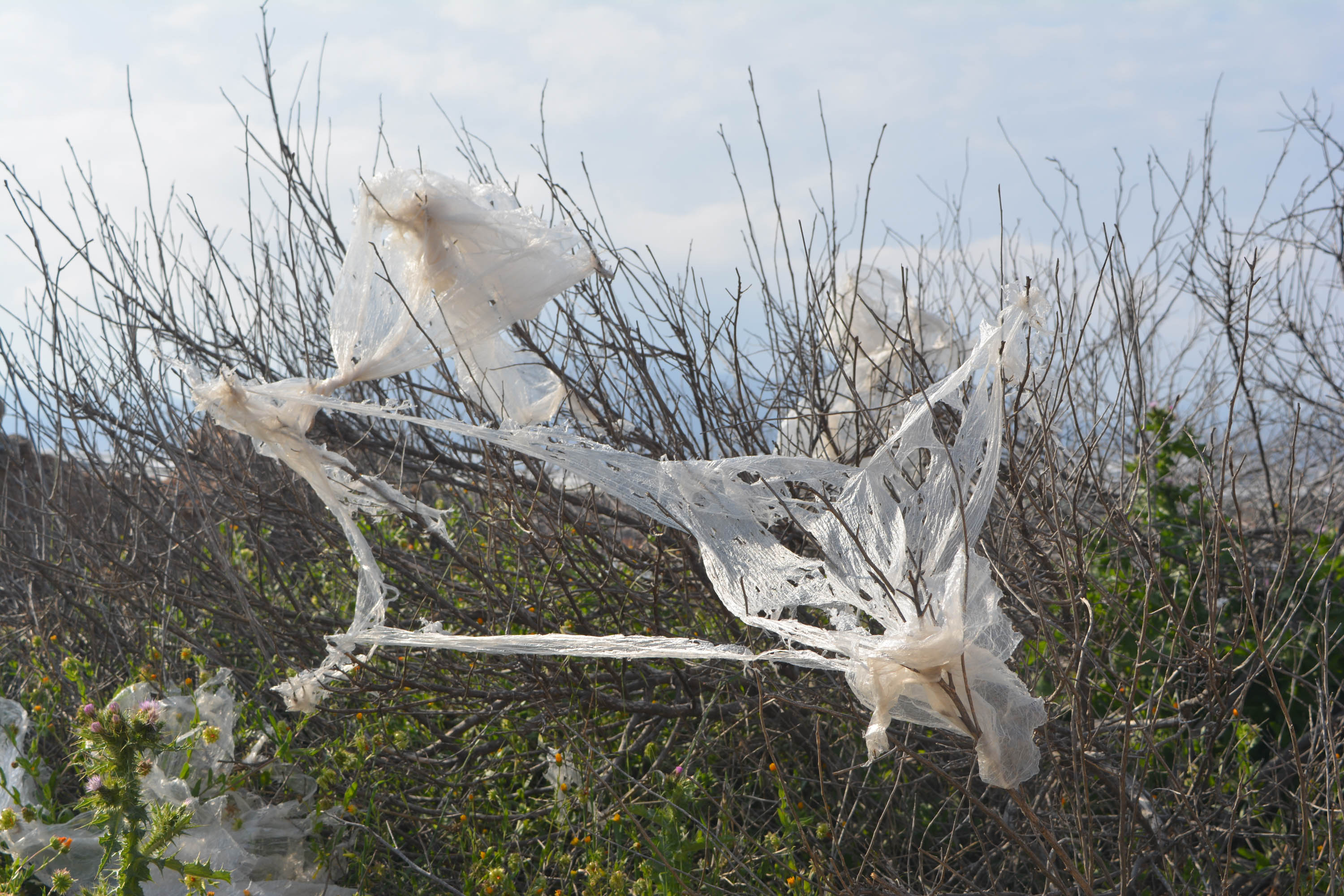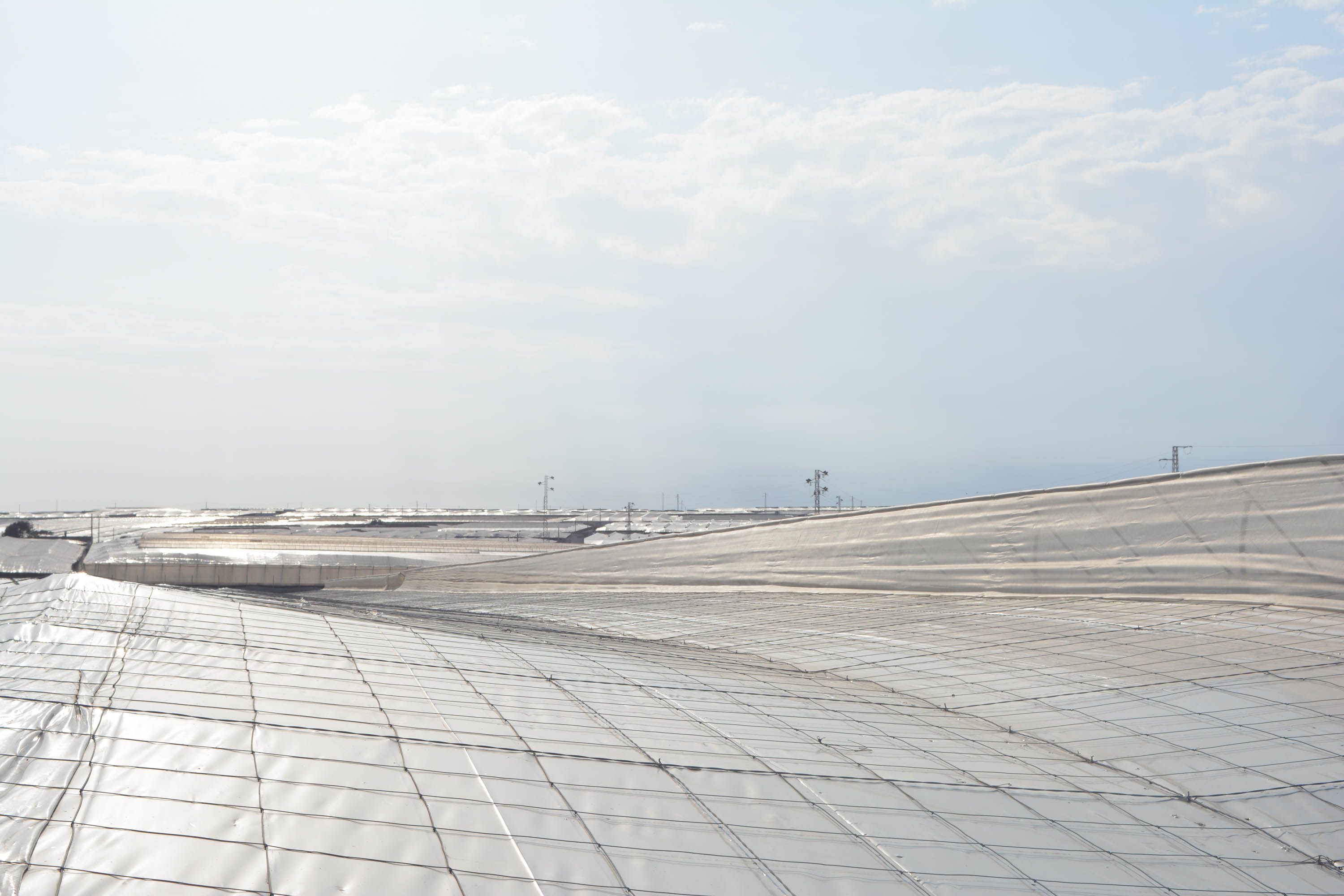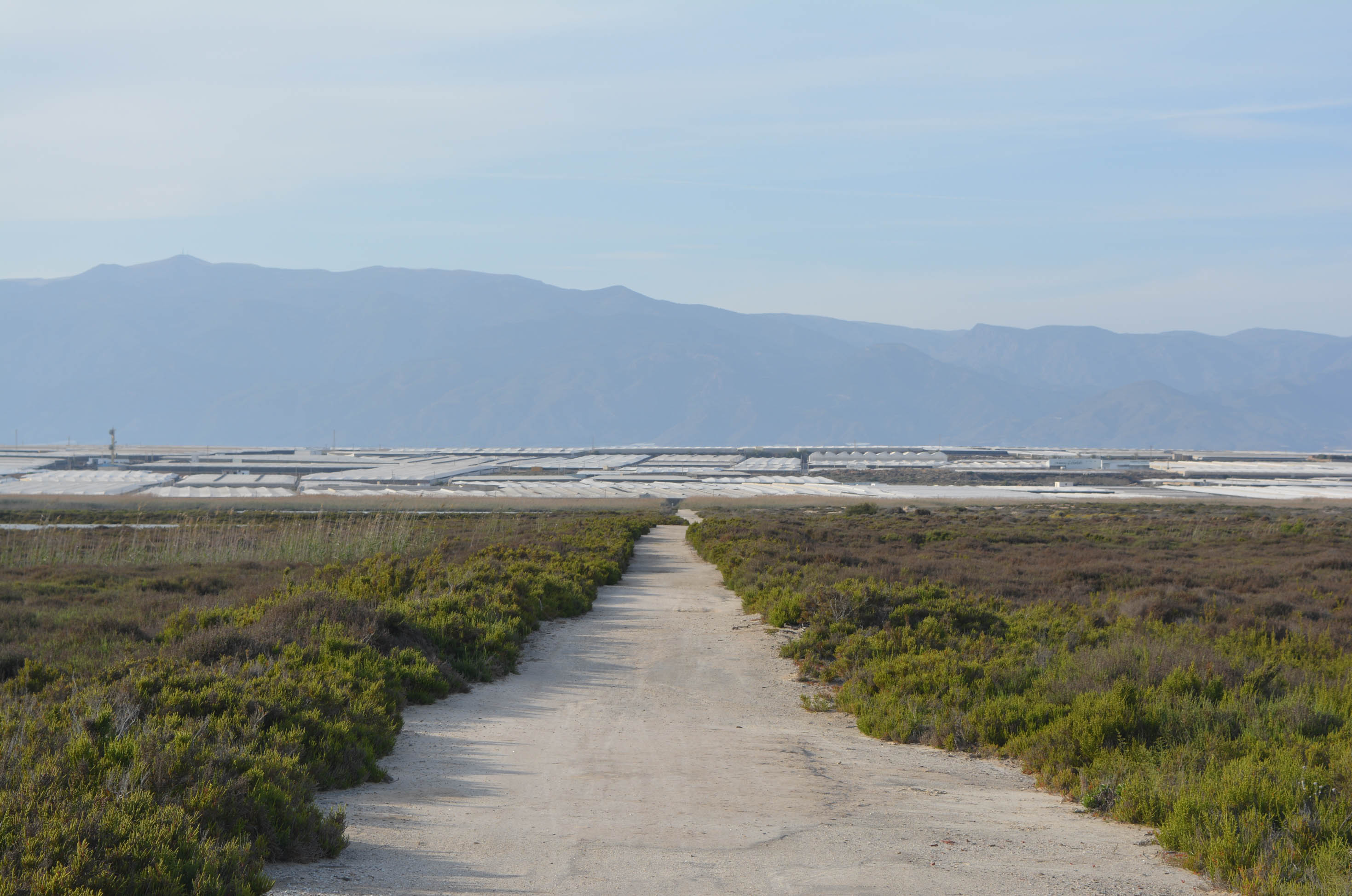[03]
[03]
Hacia otras formas de habitar en el territorio postnatural
Hacia otras formas de habitar en el territorio postnatural
The research focuses on the agri-food system of the greenhouses in El Ejido, popularly known as Mar de Plástico, in Almería. The main objective is to fully uncover this deeply postnatural territory where an amalgam of actants interact and compose an interwoven and multiscalar system to grow food for humans. A vast extension of land covered with plastic is the place where agriculturists, vegetables, water, soil, sun, chemicals, immigrant workers and animals are entangled and from where new perspectives for our future can be imagined.
Combining theory and practice, the conception of romanticised nature and alienated from the human is questioned in order to form new ways of coexistence within the New Climatic Regime that is being confronted nowadays. To fulfill this premise, Mar de Plástico is presented as a metamorphic zone where a wide range of interspecies conflicts occur and where the decentralization of the human figure is fundamental to investigate and experiment with other ways of inhabitating that separate from the idea supported by the Nature/Culture dichotomy.
Everything is gathered in a self-edited book which includes the maps, stories, drawings, texts and photographs that I produced as I carried out the investigation remotely and in situ. A speculative research like this can be a great starting point to stimulate the creation of other stories about the end of the world that can help generate new ecologising deploying practices, capable of establishing other ways of living and dying between humans and non-humans.
The research focuses on the agri-food system of the greenhouses in El Ejido, popularly known as Mar de Plástico, in Almería. The main objective is to fully uncover this deeply postnatural territory where an amalgam of actants interact and compose an interwoven and multiscalar system to grow food for humans. A vast extension of land covered with plastic is the place where agriculturists, vegetables, water, soil, sun, chemicals, immigrant workers and animals are entangled and from where new perspectives for our future can be imagined.
Combining theory and practice, the conception of romanticised nature and alienated from the human is questioned in order to form new ways of coexistence within the New Climatic Regime that is being confronted nowadays. To fulfill this premise, Mar de Plástico is presented as a metamorphic zone where a wide range of interspecies conflicts occur and where the decentralization of the human figure is fundamental to investigate and experiment with other ways of inhabitating that separate from the idea supported by the Nature/Culture dichotomy.
Everything is gathered in a self-edited book which includes the maps, stories, drawings, texts and photographs that I produced as I carried out the investigation remotely and in situ. A speculative research like this can be a great starting point to stimulate the creation of other stories about the end of the world that can help generate new ecologising deploying practices, capable of establishing other ways of living and dying between humans and non-humans.
